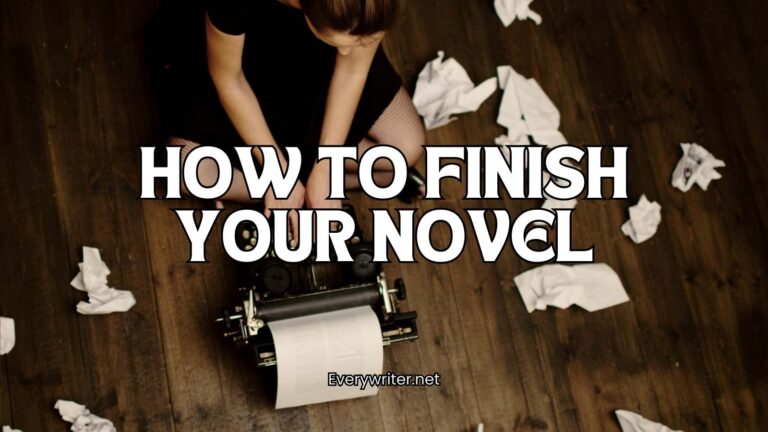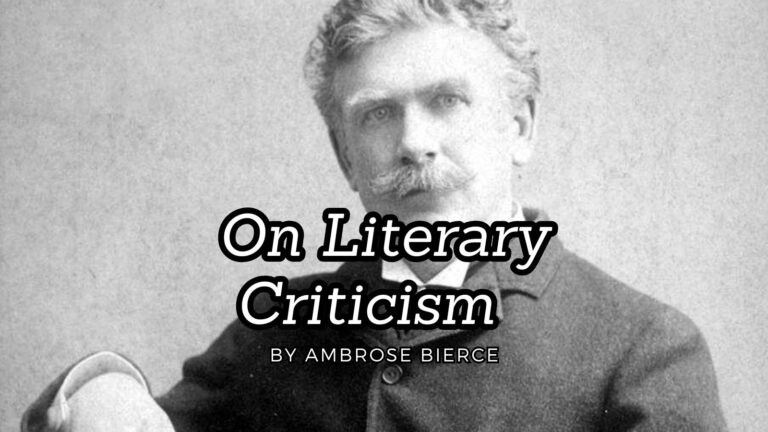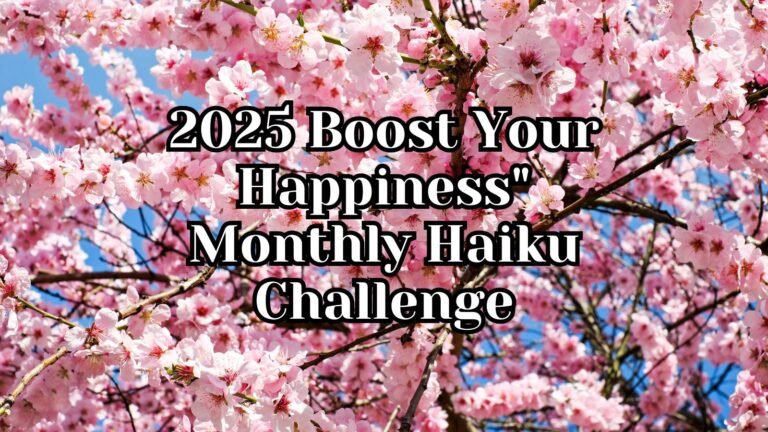44 Creativity Killers Lurking in Your Writing Routine: #37 Will Shock You!
by Steven Jensen
Are you a writer struggling to unleash your full creative potential? You’re not alone. In today’s fast-paced digital world, countless aspiring and established authors find themselves trapped in creativity-killing habits without even realizing it. But what if the very practices you think are helping your writing are actually holding you back?
Imagine unlocking a treasure trove of fresh ideas, compelling narratives, and unique perspectives – all by simply changing a few key habits. Our comprehensive guide, “44 Surprising Ways You’re Killing Your Creativity: A Writer’s Wake-Up Call,” is here to revolutionize your writing process and reignite your passion for the craft.
From the seemingly innocent routine of writing at the same time every day to the unexpected pitfalls of perfectionism, we’ll explore the hidden obstacles that may be stifling your creative voice. This isn’t just another list of writing tips – it’s a deep dive into the psychology of creativity, backed by insights from successful authors and the latest research in cognitive science.
Whether you’re a novelist battling writer’s block, a poet searching for your unique voice, or a content creator looking to stand out in a crowded digital landscape, this guide offers something for every writer. We’ll challenge common misconceptions, offer practical solutions, and provide eye-opening examples that will make you rethink your entire approach to writing.
Ready to break free from the invisible chains holding back your creativity? Buckle up for a journey of self-discovery that will transform not just your writing, but your entire creative process. Let’s explore the 44 surprising ways you might be sabotaging your creativity – and how to turn things around starting today.
1. Always writing at the same time every day
While routine can be beneficial for productivity, always writing at the same time every day can actually stifle your creativity. This rigid schedule can turn writing into a mundane task, stripping it of spontaneity and inspiration. Your brain begins to associate writing with a specific time, potentially limiting your ability to generate ideas outside of this window.
Moreover, different times of day can inspire different moods and perspectives. By varying your writing schedule, you expose yourself to diverse energies and environments. One day, an early morning session might yield introspective prose, while a late-night writing spree could spark wild, imaginative ideas. Flexibility in your writing time allows you to tap into these varied states of mind, potentially unlocking new creative avenues.
2. Emotional attachment to every word you write
Becoming emotionally attached to every word you write can be a significant barrier to creativity. This attachment often stems from a fear of imperfection or a misguided belief that every sentence must be a masterpiece. As a result, you might find yourself agonizing over individual words or phrases, unable to move forward with your writing.
This emotional connection can also make the editing process painful and ineffective. You might resist necessary changes, clinging to phrases or passages that don’t serve the overall work. Remember, writing is as much about rewriting as it is about the initial draft. By maintaining some emotional distance from your words, you free yourself to experiment, take risks, and ultimately produce more creative and polished work.
3. Editing as you write
The habit of editing as you write can be a major creativity killer. When you constantly pause to revise and perfect each sentence, you interrupt the flow of ideas from your brain to the page. This interruption can disrupt your train of thought, making it difficult to maintain narrative momentum or explore complex ideas fully.
Furthermore, premature editing can activate your inner critic too early in the process. This critical voice can squash innovative ideas before they have a chance to develop, leading to safer, less creative writing. Instead, try to separate the writing and editing processes. Let your first draft be messy and imperfect – it’s meant to be a sandbox for your creativity, not a polished final product.
4. Fear of vulnerability in your writing
Fear of vulnerability can significantly hamper your creativity as a writer. This fear often manifests as a reluctance to explore deeply personal topics or to express raw, authentic emotions in your work. You might find yourself shying away from controversial subjects or avoiding characters that hit too close to home.
However, some of the most powerful and creative writing comes from a place of vulnerability. When you allow yourself to be vulnerable on the page, you tap into universal human experiences that resonate with readers. This authenticity can lead to more original, impactful writing. Remember, what feels intensely personal to you often turns out to be relatable to many others. Embracing vulnerability in your writing can open up new creative possibilities and deepen your connection with your audience.
5. Sticking rigidly to outlines
While outlines can be useful tools for organizing your thoughts, adhering to them too rigidly can stifle your creativity. An inflexible approach to your outline can prevent you from exploring unexpected ideas or plot twists that arise during the writing process. You might find yourself forcing the narrative to fit your predetermined structure, even when the story naturally wants to go in a different direction.
Moreover, strict adherence to an outline can make your writing feel mechanical and predictable. Some of the most creative and engaging elements in writing come from spontaneous ideas that emerge during the writing process. By allowing yourself the freedom to deviate from your outline, you open the door to serendipitous discoveries and innovative narrative directions. Remember, an outline should be a guide, not a cage for your creativity.
Certainly! Here are the paragraphs for these creativity-killers, numbered starting from 6:
6. Anxiety about reader reactions influencing your creative choices
When the fear of reader reactions starts to guide your creative decisions, it can severely limit your artistic expression. This anxiety might lead you to water down controversial ideas, avoid experimental techniques, or stick to “safe” topics that you believe will please your audience. While it’s natural to want your work to be well-received, allowing this concern to dominate your creative process can result in bland, uninspired writing that lacks your unique voice.
Moreover, trying to predict and cater to reader reactions can be a futile exercise. Readers are diverse, with varied tastes and opinions. What one reader loves, another might dislike. By focusing too much on potential reactions, you risk losing sight of your own artistic vision. Remember, some of the most groundbreaking and beloved works in literature were initially met with mixed or negative reactions. Embrace your authentic voice and trust that it will find its audience.
7. Always writing in the same location
While having a dedicated writing space can be beneficial, always writing in the same location can limit your creativity. Your environment plays a crucial role in shaping your mood, perspective, and thought patterns. By confining yourself to a single space, you’re potentially missing out on the diverse stimuli that different environments can offer.
Changing your writing location can provide fresh inspiration and help break through creative blocks. A bustling café might energize your dialogue writing, while a quiet park could enhance your descriptive prose. Even small changes, like moving from your desk to a different room in your house, can shift your mental state and spark new ideas. By varying your writing locations, you expose yourself to new sights, sounds, and experiences that can enrich your writing and boost your creativity.
8. Jealousy of other writers’ success blocking your own progress
Jealousy towards other writers’ success can be a potent creativity killer. This negative emotion can consume your thoughts, distracting you from your own work and dampening your creative spirit. You might find yourself constantly comparing your progress to others, leading to feelings of inadequacy or resentment that can paralyze your writing process.
Furthermore, jealousy can blind you to the valuable lessons you could learn from successful writers. Instead of seeing their achievements as inspiration or opportunities for growth, you might view them as threats or unfair advantages. This mindset can prevent you from taking risks or exploring new techniques in your writing. Remember, every writer’s journey is unique. Channel your energy into improving your craft rather than dwelling on others’ success. Use their achievements as motivation to push your own creative boundaries.
9. Immediately sharing your work for feedback
While feedback is crucial for growth, sharing your work too soon can be detrimental to your creativity. When you immediately seek opinions on your fresh writing, you risk interrupting your creative flow and inviting external judgment before your ideas have had a chance to fully develop. This premature exposure can lead to self-doubt and may cause you to abandon promising concepts based on initial reactions.
Moreover, early feedback can sometimes steer your work in directions that don’t align with your original vision. While constructive criticism is valuable, it’s important to allow your ideas to mature and take shape before subjecting them to outside perspectives. Give yourself time to explore your concepts fully, to experiment with different approaches, and to develop a strong connection with your work. This period of private creativity can lead to more original and authentic writing.
10. Impostor syndrome preventing you from taking creative risks
Impostor syndrome can be a significant barrier to creativity, especially when it comes to taking risks in your writing. This persistent feeling of being a fraud, despite evidence of your competence, can lead you to play it safe in your work. You might stick to familiar techniques or themes, avoiding innovative ideas or experimental styles for fear of being “exposed” as an impostor.
This self-doubt can also prevent you from sharing your unique perspective or tackling challenging subjects in your writing. You might convince yourself that you’re not qualified to write about certain topics or that your ideas aren’t worthy of exploration. However, it’s often these personal, daring choices that lead to the most creative and impactful writing. Remember, even accomplished writers sometimes feel like impostors. Acknowledge these feelings, but don’t let them dictate your creative choices. Taking risks and pushing your boundaries is how you grow as a writer and discover your true potential.
11. Always writing in silence
While silence can be conducive to concentration, always writing in complete quiet might be limiting your creative potential. Different types of ambient noise can stimulate various parts of your brain, potentially unlocking new ideas or perspectives. The gentle hum of a café, the rhythmic sounds of nature, or even specific types of music can enhance your creativity in unexpected ways.
Moreover, varying your auditory environment can help you tap into different emotional states, which can be particularly useful when writing diverse scenes or characters. The key is to experiment and find what works best for different aspects of your writing. You might discover that silence is perfect for editing, while some background noise helps with brainstorming or drafting. Don’t let the fear of distraction keep you from exploring the creative benefits of a varied soundscape.
12. Emotional burnout from overworking on a single project
Pouring all your energy into one project might seem like dedication, but it can lead to emotional burnout that stifles creativity. When you work intensively on a single piece for too long, you risk losing perspective and emotional connection to your work. This can result in stale writing, lack of enthusiasm, and a diminished ability to generate fresh ideas.
To avoid this creativity killer, it’s crucial to balance your writing projects and take regular breaks. Working on multiple projects simultaneously or alternating between different types of writing can keep your creative juices flowing. It’s also important to engage in activities unrelated to writing to recharge your creative batteries. Remember, sometimes stepping away from a project is the best way to gain new insights and reinvigorate your passion for it.
13. Perfectionism in first drafts
Striving for perfection in your first draft can be a major roadblock to creativity. The pressure to produce flawless prose from the outset can lead to writer’s block, anxiety, and a reluctance to experiment with new ideas. First drafts are meant to be rough and exploratory – they’re about getting your ideas down, not crafting perfect sentences.
By allowing your first draft to be messy and imperfect, you give yourself the freedom to explore wild ideas, take creative risks, and discover unexpected directions for your story. Embrace the concept of “writing badly” in your first draft – it’s often through these seemingly chaotic initial attempts that the most original and creative elements emerge. Remember, you can always refine and polish your work in subsequent drafts.
14. Stubbornness in holding onto outdated writing beliefs
Clinging to outdated writing beliefs or techniques can severely limit your creative growth. The world of writing is constantly evolving, with new styles, formats, and platforms emerging regularly. If you stubbornly adhere to what you learned years ago without being open to new ideas, you risk your writing becoming stale and out of touch.
This doesn’t mean you should abandon everything you know, but rather that you should remain open to learning and adapting. Regularly challenge your writing beliefs. Experiment with new techniques, even if they feel uncomfortable at first. Read widely, including genres and styles you normally avoid. By maintaining a flexible, growth-oriented mindset, you keep your creativity fresh and your writing relevant.
15. Always writing sober
While this point might be controversial, always writing in a sober state could potentially be limiting your creativity. Moderate and responsible use of substances like alcohol or caffeine has been known to lower inhibitions and spark unique ideas in some writers. The key word here is “moderate” – excessive use is likely to hinder rather than help your writing.
However, this doesn’t necessarily mean you should start drinking to write. The broader point is about altering your conscious state to access different parts of your mind. This could be achieved through various means such as meditation, exercise, or even sleep deprivation (in moderation). The goal is to occasionally step out of your normal mental state to see your writing from a different perspective. As always, any exploration of altered states should be done responsibly and with consideration for your health and well-being.
16. Neglecting physical exercise
Physical inactivity can be a silent creativity killer. When you spend long hours sitting and writing without engaging in regular exercise, you’re not just affecting your physical health, but your mental agility as well. Exercise increases blood flow to the brain, releases endorphins, and can help reduce stress – all of which can boost your creative thinking.
Moreover, physical activity, especially outdoor exercise, can provide new experiences and stimuli that can inspire your writing. A walk in nature, a yoga session, or even a quick workout can help clear your mind, allowing fresh ideas to surface. Try incorporating regular physical activity into your routine, even if it’s just a short walk between writing sessions. You might find that your most creative ideas come to you when you’re away from your desk.
17. Always writing in chronological order
While writing your story in chronological order might seem logical, it can sometimes stifle your creativity. By forcing yourself to write scenes in sequence, you might get stuck on difficult sections, hindering your overall progress and enthusiasm for the project.
Instead, allow yourself the freedom to write scenes out of order. If you’re feeling particularly inspired about a climactic moment, write that first. This non-linear approach can help maintain your motivation and allow you to see your story from different angles. It can also help you identify plot holes or inconsistencies more easily. Remember, you can always rearrange and connect these scenes during the editing process.
18. Ignoring your physical environment while writing
Your physical surroundings can have a significant impact on your creativity, yet many writers overlook this aspect. A cluttered, uncomfortable, or uninspiring workspace can subconsciously affect your mood and thought processes, potentially limiting your creative output.
Take some time to create a writing environment that stimulates your creativity. This might involve decluttering your desk, adding plants or artwork, ensuring proper lighting, or even creating a dedicated writing nook. Experiment with different setups to find what works best for you. Remember, your ideal writing environment might change depending on your project or mood, so don’t be afraid to switch things up occasionally.
19. Overuse of passive voice
While passive voice has its place in writing, overusing it can make your prose feel flat and less engaging, indirectly affecting your creativity. When you consistently use passive constructions, you might find yourself falling into predictable sentence patterns, limiting the dynamism of your writing.
Active voice generally creates more direct, vibrant prose that can energize your writing and, by extension, your creative process. By consciously varying your sentence structures and favoring active voice, you challenge yourself to think more critically about your word choices and phrasing. This attention to detail can spark new ideas and approaches to your writing.
20. Neglecting to explore different narrative perspectives
Sticking to one narrative perspective throughout all your writing projects can limit your creative exploration. Each point of view – first person, second person, third person limited, omniscient – offers unique storytelling possibilities and challenges.
By experimenting with different perspectives, you can discover new ways to tell your story, develop characters, and create tension. You might find that a story you’re struggling with in first person suddenly comes alive when rewritten in third person, or vice versa. Don’t be afraid to rewrite scenes from different viewpoints as an exercise – it can lead to surprising insights and creative breakthroughs.
21. Relying too heavily on digital tools for research
In the digital age, it’s easy to become overly dependent on internet searches and digital resources for research. While these tools are undoubtedly valuable, relying on them exclusively can limit your creative perspective and lead to homogenized information.
By expanding your research methods, you can uncover unique details and perspectives that spark creativity. Visit physical libraries and browse books you wouldn’t normally consider. Conduct in-person interviews with experts or individuals who have relevant experiences. Explore museums, attend lectures, or visit locations related to your subject matter. These tactile, immersive experiences can provide sensory details and unexpected insights that online research alone might miss. The richness of real-world research can add depth and authenticity to your writing, fueling your creativity in ways that digital tools alone cannot match.
22. Neglecting to read outside your genre
Sticking solely to the genre you write in can limit your creative horizons. While it’s important to be well-versed in your chosen field, reading exclusively within it can lead to stagnation and predictability in your own work.
Expand your reading list to include diverse genres, styles, and even non-fiction. This cross-pollination of ideas can inspire fresh approaches to your writing. You might find that the pacing of a thriller invigorates your romance novel, or that the world-building techniques in fantasy enhance your science fiction. Embracing literary diversity can broaden your creative palette and help you bring unique elements to your preferred genre.
23. Overthinking your first sentence
Obsessing over crafting the perfect opening line can paralyze your writing process before it even begins. While a strong first sentence is important, allowing it to become a roadblock can stifle your creativity and prevent you from diving into the meat of your story.
Instead of fixating on the perfect opener, allow yourself to start writing from wherever inspiration strikes. You can always return to refine your beginning later. Remember, some of the most iconic opening lines in literature weren’t written first – they often emerge during the revision process. By freeing yourself from this initial pressure, you open up space for your creativity to flow more freely.
24. Avoiding collaboration with other writers
Writing is often viewed as a solitary activity, but isolating yourself completely from other writers can limit your creative growth. Collaboration can introduce you to new perspectives, techniques, and ideas that you might not have considered on your own.
Consider joining a writing group, participating in collaborative writing projects, or even co-authoring a piece with another writer. These experiences can challenge you to think differently, adapt to new writing styles, and push your creative boundaries. Even if you prefer to work alone, occasional collaboration can provide fresh inspiration and help you see your own work from new angles.
25. Ignoring the power of dreams and subconscious
Your subconscious mind, often most accessible through dreams, can be a wellspring of creativity that many writers overlook. Dismissing your dreams or failing to tap into your subconscious can mean missing out on unique ideas and perspectives.
Try keeping a dream journal by your bed and jotting down your dreams immediately upon waking. Even fragments or emotions from dreams can spark creative ideas. Additionally, techniques like meditation or free writing can help you access your subconscious thoughts during waking hours. By paying attention to these often-overlooked aspects of your mind, you can uncover a rich source of creative inspiration.
26. Fearing the use of tropes
While it’s good to strive for originality, completely avoiding common tropes out of fear of being unoriginal can actually limit your creativity. Tropes exist because they resonate with readers, and skillful use or subversion of tropes can lead to compelling, creative writing.
Instead of fearing tropes, try to approach them creatively. How can you put a unique spin on a familiar concept? Can you combine tropes in unexpected ways? By engaging with tropes thoughtfully, you can create work that feels both fresh and familiar, potentially leading to innovative storytelling.
27. Neglecting to create a diverse cast of characters
Sticking to character types you’re familiar with or that reflect your own experiences can limit the depth and creativity of your writing. A lack of diversity in your cast can lead to predictable interactions and narrow perspectives.
Challenge yourself to create characters with diverse backgrounds, experiences, and viewpoints. This doesn’t just apply to ethnic or cultural diversity, but also to age, profession, personality types, and life experiences. Research and empathy are key here. By populating your stories with a wide range of characters, you open up new narrative possibilities and force yourself to think creatively about different perspectives and interactions.
28. Overreliance on adverbs
While adverbs have their place in writing, overusing them can lead to lazy prose and stifled creativity. Relying too heavily on adverbs often indicates missed opportunities for more vivid, specific description.
Instead of quickly reaching for an adverb, challenge yourself to find more creative ways to convey the same information. This might involve choosing stronger verbs, providing more contextual details, or showing a character’s emotions through their actions rather than simply stating them. By limiting your use of adverbs, you push yourself to think more critically about your word choices, potentially uncovering more creative and impactful ways to express your ideas.
29. Ignoring the rhythm and sound of your prose
Focusing solely on the meaning of your words while ignoring how they sound when read aloud can result in prose that lacks musicality and flow. This oversight can subconsciously affect the reader’s engagement with your work and limit the full creative potential of your writing.
Take time to read your work aloud, paying attention to the rhythm and cadence of your sentences. Vary your sentence length and structure to create a pleasing flow. Consider the phonetic qualities of words, not just their definitions. This attention to the auditory aspects of your writing can enhance its impact and push you to make more creative word choices, resulting in prose that’s not just meaningful, but also beautiful to hear.
30. Avoiding uncomfortable emotions in your writing
Shying away from exploring difficult or uncomfortable emotions in your writing can limit the depth and authenticity of your work. Many writers avoid delving into pain, fear, or other challenging feelings out of personal discomfort or fear of vulnerability.
Embracing these emotions in your writing can lead to more powerful, relatable content. It can also be cathartic and help you grow as a writer. Push yourself to explore the full spectrum of human emotion in your characters and narratives. This emotional honesty can spark creativity and help you connect more deeply with your readers.
31. Neglecting to study story structure
While it’s important to let your creativity flow freely, completely ignoring story structure can lead to unfocused, meandering narratives. A lack of understanding of basic story structures might result in plots that fail to engage readers effectively.
Study various story structures, from the classic three-act structure to more complex forms. Understanding these frameworks doesn’t limit your creativity – instead, it gives you tools to shape your ideas more effectively. You can always break the rules, but knowing them first allows you to do so in clever, intentional ways that enhance your storytelling.
32. Forgetting to engage all five senses in your descriptions
Many writers focus primarily on visual descriptions, neglecting the other senses. This oversight can result in flat, less immersive writing that fails to fully engage the reader’s imagination.
Challenge yourself to incorporate all five senses into your descriptions. What does a scene smell like? What textures would your character feel? What sounds create the atmosphere? By engaging all the senses, you create a more vivid, three-dimensional world that sparks creativity and draws readers deeper into your story.
33. Dismissing the value of “bad” ideas
Often, writers are quick to discard ideas they deem “bad” or “silly.” However, this immediate dismissal can shut down potential avenues for creativity.
Instead of immediately rejecting ideas that seem unfeasible or strange, allow yourself to explore them further. Sometimes, a “bad” idea can lead to a great one, or contain an element that, when refined, becomes something unique and compelling. Keep an “idea journal” where you write down all your ideas without judgment. You might be surprised at how a seemingly bad idea can transform when you give it time to develop.
34. Sticking to a single writing software or app
While having a preferred writing tool is fine, rigidly sticking to one software or app for all your writing needs can limit your creative process. Different tools offer various features that might better suit different stages of your writing or types of projects.
Experiment with different writing software, apps, and even analog methods like notebooks or index cards. You might find that brainstorming works better in a mind-mapping app, while drafting flows more smoothly in a distraction-free writing program. Being flexible with your tools can help you adapt your process to best serve your creativity at each stage of writing.
35. Neglecting to set and celebrate small goals
Focusing solely on big goals like finishing a novel can be overwhelming and potentially stifling to your creativity. When the end seems far off, it’s easy to lose motivation and creative spark.
Break your writing process into smaller, achievable goals. Celebrate these milestones, whether it’s writing 500 words a day, finishing a chapter, or completing a round of edits. These small victories can boost your confidence, maintain your momentum, and keep your creative energy flowing.
36. Avoiding writing exercises and prompts
Some writers avoid structured writing exercises or prompts, viewing them as unnecessary or beneath their skill level. However, this attitude can lead to stagnation in your creative growth.
Regular writing exercises, even if they seem simple, can help you stay nimble and explore new techniques or perspectives. They can break you out of ruts and inspire new ideas. Treat these exercises like a musician practices scales – they keep your skills sharp and can lead to unexpected creative breakthroughs.
37. Neglecting your physical and mental health
In the pursuit of creativity, writers often neglect their physical and mental well-being. Skipping meals, losing sleep, or ignoring stress can all have severe impacts on your creative output.
Remember that your brain needs proper nutrition, rest, and care to function at its creative best. Prioritize regular meals, adequate sleep, and stress-management techniques like meditation or therapy. A healthy mind and body are your most valuable creative assets. Taking care of yourself isn’t a distraction from your writing – it’s an essential part of nurturing your creativity.
38. Clinging to a single writing method
Stubbornly adhering to one writing method, whether it’s outlining extensively or purely pantsing (writing by the seat of your pants), can limit your creative flexibility. Different stories or projects might benefit from different approaches.
Experiment with various writing methods. Try outlining if you usually don’t, or allow yourself to write more freely if you’re typically a strict planner. You might discover that a hybrid approach works best, or that switching methods can help overcome writer’s block. Flexibility in your writing process can open up new creative possibilities.
39. Ignoring the power of white space
Constantly trying to fill every page with dense prose can be overwhelming for both you and your readers. This approach might lead to overwriting and dilute the impact of your most important ideas.
Embrace the power of white space in your writing. Use short paragraphs, dialogue, or even intentional line breaks to give your words room to breathe. This can enhance pacing, emphasize key points, and make your writing more visually appealing. Sometimes, what you don’t say is as important as what you do.
40.Avoiding writing about personal experiences
Fear of vulnerability or concerns about privacy might keep you from drawing on personal experiences in your writing. However, this can deprive your work of authenticity and emotional depth.
While you don’t need to share every detail of your life, allowing your personal experiences to inform your writing can add richness and relatability to your work. Find ways to transmute your experiences into your fiction, or consider personal essays to directly explore your life stories. Your unique perspective is a valuable creative asset.
40. Neglecting to revise old ideas
Sometimes, writers discard old ideas or unfinished projects too quickly, seeing them as failures rather than opportunities for growth.
Revisit your old ideas and unfinished works periodically. With the perspective of time and your evolved skills, you might find new potential in these abandoned projects. An idea that didn’t work before might be just what you need for your current project, or an unfinished story might spark a completely new concept.
41. Fear of writing in new formats
Sticking only to familiar formats (like always writing novels if you’re a novelist, or always writing sonnets if you’re a poet) can limit your creative range.
Challenge yourself to try new formats. If you’re a novelist, try writing a short story or a script. If you’re a poet, experiment with prose. Each format has its own rules and rhythms that can inform and enhance your primary style. This cross-training in writing can spark new ideas and improve your overall craft.
42. Ignoring the impact of music on your writing
While some writers prefer silence, ignoring the potential of music to influence your writing mood and rhythm can be a missed opportunity for creativity.
Experiment with different types of music while you write. Instrumental music can provide ambiance without the distraction of lyrics. Movie soundtracks can help set a particular emotional tone. Pay attention to how different music affects your writing style and emotional state. You might discover that certain types of music enhance your creativity for different kinds of scenes or projects.
43. Overthinking your audience
While it’s important to consider your readers, constantly worrying about what your audience will think can paralyze your creative process and lead to safe, uninspired writing.
Allow yourself to write for yourself first, especially in early drafts. Focus on the story you want to tell or the ideas you want to explore. Your authentic voice and passion will resonate with readers more than something written solely to please an imagined audience. You can consider reader expectations more closely during the editing process.
44. Neglecting to read your work aloud
Skipping the step of reading your work aloud can result in missed opportunities to improve rhythm, catch errors, and enhance the overall flow of your writing.
Make it a habit to read your work aloud, especially during the editing process. This practice helps you catch awkward phrasing, repetitive words, and pacing issues that you might miss when reading silently. It can also help you develop a stronger sense of your unique voice as a writer. This auditory perspective can spark new ideas for improvements and amplify your creative editing process.
In Conclusions
As we’ve explored these 44 surprising creativity killers, you may have recognized some habits in your own writing routine. Don’t be discouraged – awareness is the first step towards positive change. Remember, even the most successful authors have faced these challenges and overcome them.
The journey to unlocking your full creative potential is ongoing. It requires patience, experimentation, and a willingness to step out of your comfort zone. Start by choosing one or two areas from our list to focus on. Maybe you’ll try writing at a different time of day, or perhaps you’ll challenge yourself to explore a new genre. Small changes can lead to big breakthroughs.
Keep in mind that creativity is not a finite resource – it’s a muscle that grows stronger with exercise. By addressing these creativity-killing habits, you’re not just improving your writing; you’re enriching your entire creative life. The skills and insights you gain will spill over into other areas, from problem-solving to personal relationships.
We encourage you to share this guide with your fellow writers. Start conversations about these creativity killers and the strategies to overcome them. By building a supportive community of creatives, we can all grow and thrive together. Remember, your unique voice and perspective are valuable – don’t let these hidden obstacles keep them locked away.
Now, armed with this knowledge, it’s time to take action. Pick up that pen, open that laptop, and dive back into your writing with renewed energy and insight. Your next great idea is waiting to be discovered, and with these creativity-boosting strategies, you’re better equipped than ever to bring it to life. Happy writing, and may your creativity flow freely!
- A Complete Guide to the Hero’s Journey in Storytelling (Free Worksheet) - April 10, 2025
- On Literary Criticism by Ambrose Bierce - April 9, 2025
- 2025 “Boost Your Happiness” Monthly Haiku Challenge - April 9, 2025







